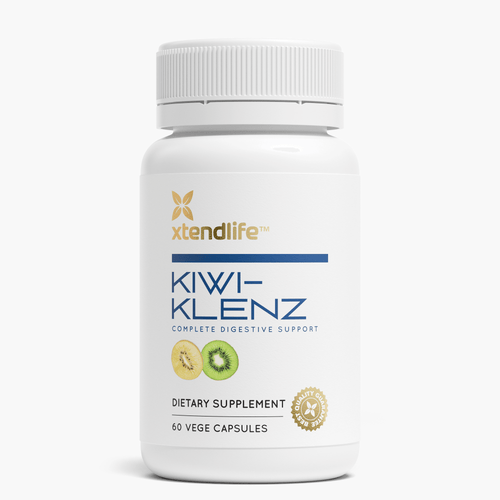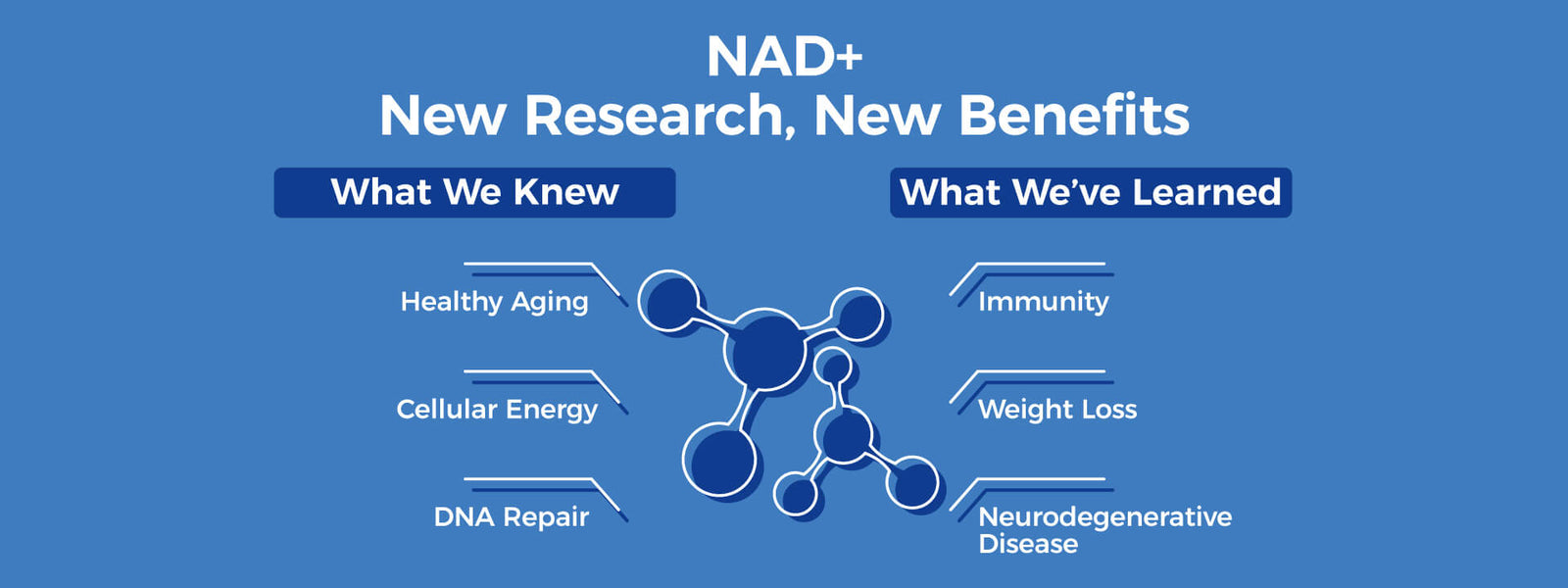It seems that the more we know about nutrition and exercise, the more confusing it all becomes.
But what if the missing piece of the weight loss puzzle was located in our gut? Turns out it just might be.
We know that the balance of bacteria in our digestive system has wide-ranging impacts on our health, from immunity to mood. But researchers have recently discovered that the microbiota (bacteria) in our gut may also play an important role in the size of our waistline.
Tipping the scales
Eating carrot sticks, running three miles a day and yet the scales still aren’t budging? Blame your gut bacteria.
It seems that the ratio of bacteria in our digestive system impacts how our bodies respond to a diet – and therefore how much weight we lose. Danish researchers studied the impacts of dietary intervention on 62 overweight adults with different ratios of the Prevotella species and Bacteroidesspecies of bacteria in their digestive system. Participants were randomly assigned into two groups – 26 followed a New Nordic Diet (NDD), high in fibre, vegetables and wholegrain and 26 followed an Average Danish Diet (ADD).
After 26 weeks, the group with a higher ratio of Prevotella to Bacteroides and following the New Nordic Diet (NDD) had lost an average of 3.15kg more body fat than those following the Average Danish Diet (ADD). But, in the participants with a lower ratio of Prevotella to Bacteroides, there were no differences between the two groups – suggesting that the ratio of bacterial species in our gut is an important factor in weight loss.[1]
How our gut microbiota impacts our weight
Ok, so if the balance of our gut bacteria impacts our ability to lose weight… the natural question is, why?
Researchers are still trying to figure this out, but there seems to be a range of factors: inflammation, metabolism and satiety.
Inflammation
Obesity is increasingly recognized as an inflammatory disorder[2]: Inflammation seems to promote fat storage, and fat cells excrete inflammatory cytokines (simply put: chemicals). Whether inflammation causes weight gain or is a side effect of it, we are not yet sure, but the two are inextricably linked.
So how does this all tie in gut bacteria?
Consumption of a high fat or sugar diet can disturb the balance of bacteria in the gut, promoting the overgrowth of unhealthy bacteria. Over time this unhealthy bacteria can damage the delicate cells of the intestinal mucusa (gut wall), causing the release of those pro-inflammatory cytokines. This chronic low-grade inflammation may be linked to weight gain[3].
How food is utilised and stored
Both weight gain and loss are determined by the balance between energy intake and energy expenditure – if you eat more than you burn, you will gain weight and vice versa.
Sounds simple enough. But what about those people who seem to eat loads and never gain weight?
It could be genetics. Or it could be their gut bacteria.
It seems that the gut bacteria of overweight people might be more efficient at extracting energy from food than lean people.
Hold on… so two different people consuming exactly the same food item – and the same number of calories – might use it and store it differently? So it seems.
The ratio of bacteria species in the gut may affect the number of calories we absorb from our food and whether these calories are used as energy or stored as fat[4]. Studies in mice showed that those with higher levels of the Firmicutes bacteria relative to the Bacteroides bacteria absorbed more calories from their food than those with a lower ratio - and they stored more of those calories as fat. A similar process is likely to be the case with humans.
This might explain why in the Danish study, those with a higher Prevotellato Bacteroides ratio lost more weight on the New Nordic Diet than those with a lower ratio – they simply absorbed less calories.
Hunger strikes
Appetite regulation is integral to both losing and maintaining weight. Saying no to that chocolate muffin is much easier if you are not ravenous at 3.30pm.
Just as it affects how we metabolise food, the balance of bacteria in the gut appears to affect our feelings of hunger and fullness.
A study in Cell Metabolism[5] found that colonies of Escherichia coli (E.coli) bacteria living in our intestines release proteins around 20 minutes after a meal that signal to our brain that we are full. The proteins, called ClpB, stimulate the release of a hormone called peptide YY, which has been linked to a feeling of satiety. Researchers also found that the ClpBproteins increased the firing of neurons in the brain that are associated with reducing appetite.
So before you reach for that second helping of pie, wait 20 minutes and see if you are really still hungry. Your gut bacteria will tell you.
Insulin sensitivity
We know that blood sugar balance and insulin sensitivity are directly linked to weight and fat storage.
When we eat carbohydrates, the body releases the hormone Insulin to transport the glucose (sugar) into our cells where it is utilised for energy. But if we consume large amounts of refined foods, sugar or trans fats, our cells can become ‘desensitised’ to the effects of Insulin - meaning larger and larger amounts of the hormone are needed to get the glucose into our cells.
Eventually, cells can become ‘insulin-resistant’ - meaning insulin is no longer able to transport glucose in. At this point, the person feels tired as their cells are not receiving energy, while at the same time, the excess glucose is stored as fat. Insulin-resistance is a recognised as a pre-cursor to Type II diabetes and obesity.
The balance of bacteria in our digestive system appears to affect how our bodies metabolise carbohydrates and respond to insulin.[6][7] The chronic low-level state of inflammation created by a high fat and sugar diet not only affects our balance of gut bacteria, it also causes our cells to become less sensitive to the effects of insulin.
Re-addressing the balance
So given all of that, it seems pretty important to maintain a healthy balance of bacteria in our digestive system…but just how do we do that?
Rebalancing Your Gut Bacteria
Boost your digestive health with the power of 100% pure New Zealand kiwifruit.
Shop now
Diet and lifestyle, of course. The very same behaviours and nutrients that promote good health and weight loss will also encourage a healthy balance of bacteria:
- Consume 7-10+ servings of fruit and vegetables per day.
- Drink 2 litres of water every day.
- Limit alcohol to 7 drinks or less per week (including at least three alcohol free days).
- Avoid sugar and processed foods (fried foods, anything from a packet, cakes, cookies, donuts, muffins, sauces, low-fat yoghurts, packaged breakfast cereals).
- Limit coffee to one per day
- Wherever possible choose organic foods. The pesticides and herbicides applied to commercial fruit and vegetables and the antibiotics given to non-organic meat and dairy can kill off good bacteria, allowing other bacterial species to proliferate.
- Base your meals around vegetables and lean protein, with small portions of high quality carbohydrates. E.g. Roast lamb, beans, asparagus and sweet potato, or salmon, broccoli, carrots and brown rice. Eating this way will not only promote the growth of good bacteria in the gut, but balance blood sugar levels, promote satiety and keep hunger at bay.
- Consume prebiotics and soluble fibre every day. Prebiotics and soluble fibre actually feed the good bacteria in our digestive system - helping to improve digestion and restore the balance of bacteria. Kiwifruit is a digestive powerhouse – naturally high in both prebiotics and soluble fibre. Unfortunately most store bought kiwifruit has been artificially ripened – meaning many of these powerful benefits are lost by the time the fruit reaches supermarket shelves. Xtendlife’s Kiwi-Klenz, bottles up all these benefits in a single convenient supplement, so you get all weight loss, immunity and digestion support you need.
- Avoid unnecessary antibiotics.
A little extra
We could all use a little boost. Give your training and clean eating a little extra help with Xtendlife’s Garcinia Cambogia and Green Coffee Bean extract. These nutrients work via two different mechanisms to support your weight loss efforts.
Garcinia Cambogia is a rich source of a hydroxycytric acid (ACID) which helps block fat production. In therapeutic doses HCA temporarily inhibits an enzyme (ATP citrate lyase) that converts dietary carbohydrates into fat, helps increase energy, decreases cravings for sweets and promotes satiety, preventing hunger. [8]
Green coffee bean extract contains a substance called Chlorogenic Acid which is believed to boost metabolism and promote weight loss.[9] Some human studies suggest that it can reduce the absorption of carbohydrates, which lowers blood sugar and insulin spikes[10] [11]. It also contains caffeine, which is known to raise metabolism.
Both Garcinia Cambogia and Green Coffee Bean are hugely popular as weight loss aids, however the quality of these supplements can vary widely. Xtendlife’s Garcinia Cambogia and Green Coffee Bean is strictly tested and manufactured under Good Manufacturing Practice (GMP) guidelines, so you can trust its quality and potency. Plus we have combined these two powerful weight loss aids in one convenient supplement so you get maximum benefit.
References:
[1] M F Hjorth, H M Roager, T M Larsen, S K Poulsen, T R Licht, M I Bahl, Y Zohar and A Astrup. Pre-treatment microbial Prevotella-to-Bacteroides ratio, determines body fat loss success during a 6-month randomized controlled diet intervention. International Journal of Obesity advance online publication 10 October2017.
[2] Cancello, R. and Clément, K. Is Obesity an Inflammatory Illness? Role of low-grade inflammation and macrophage infiltration in human white adipose tissue. BJOG: Vol 1103, Issue 10, October 2006 (1141-1147)
[3] Cancello, R. and Clément, K. Is Obesity an Inflammatory Illness? Role of low-grade inflammation and macrophage infiltration in human white adipose tissue. BJOG: Vol 1103, Issue 10, October 2006 (1141-1147)
[4] Sanmiguel, C., Gupta, A. and Mayer, E. Gut microbiome and Obesity: A Plausible Explanation for Obesity. Curr Obes Rep. 2015 Jun (4(2):250-261.
[5] Breton, J., Tennoune, N., Lucas, N., Fracnois, M. LEgrand, R. Jacquemot, J., Goichon, A., Guerin, C., Peltier, J., Pestel-Caron, N. Chan, P., Vaudry, D. Rego, J-C., Lienard, F., Penicaud, L., Fioramanti, X., Ebenzer, I., Hokfelt, T., Fetissov, S. Gut Commensal E. coli Proteins Activate Host Satiety Pathways following Nutrient-Induced Bacterial Growth.Cell Metabolism. Volume 23, Issue 2, 9 February 2016, (324-334).
[6] Sanmiguel, C., Gupta, A. and Mayer, E. Gut microbiome and Obesity: A Plausible Explanation for Obesity. Curr Obes Rep. 2015 Jun (4(2):250-261.
[7] Caricilli, A. and Saad, M. The Role of Gut Microbiota on Insulin Resistance.Nutrients. 2013 Mar; 5(3): 829–851.
[8] Lopez, L. Natural Health: A New Zealand A to Z Guide.Bateman, Auckland, 2002. (56)
[9] Onakpoya, I. Terry, R. and Ens, E. The Use of Green Coffee Extract as a Weight Loss Supplement: A Systematic Review and Meta-Analysis of Randomised Clinical Trials. Gastroenterol Res Pract. 2011; 2011: 382852.
[10] Johnston KL1, Clifford MN, Morgan LM. Coffee acutely modifies gastrointestinal hormone secretion and glucose tolerance in humans: glycemic effects of chlorogenic acid and caffeine.Am J Clin Nutr. 2003 Oct;78(4):728-33.
[11] van Dijk AE, Olthof MR, Meeuse JC, Seebus E, Heine RJ, van Dam RM.Acute effects of decaffeinated coffee and the major coffee components chlorogenic acid and trigonelline on glucose tolerance.Diabetes Care. 2009 Jun;32(6):1023-5. doi: 10.2337/dc09-0207. Epub 2009 Mar 26.


 Supplements
Supplements Bundles
Bundles













